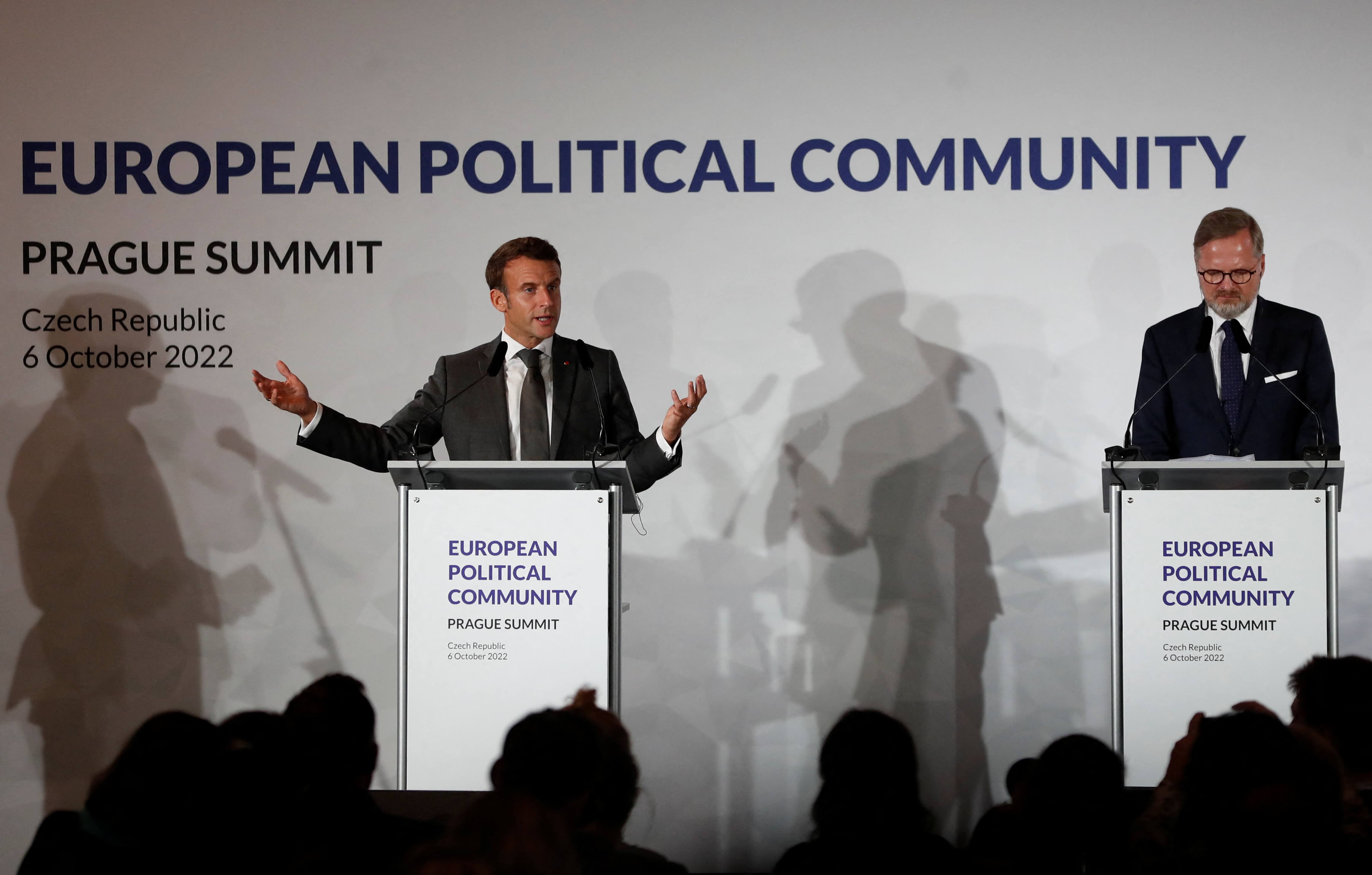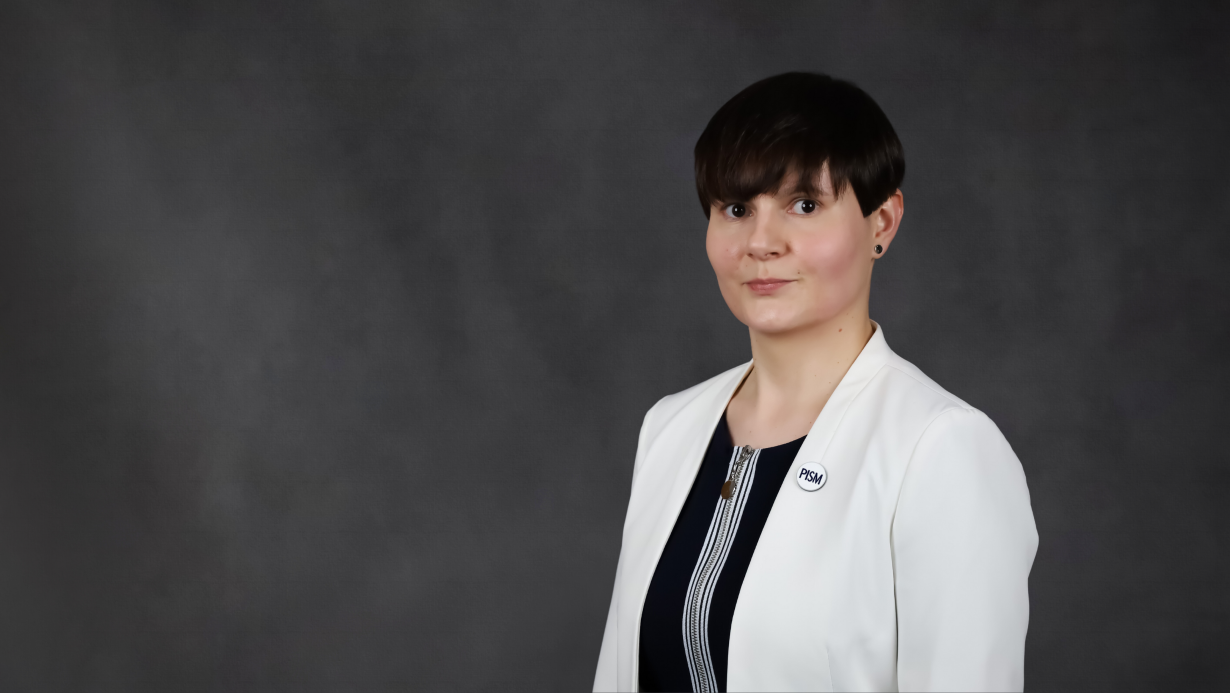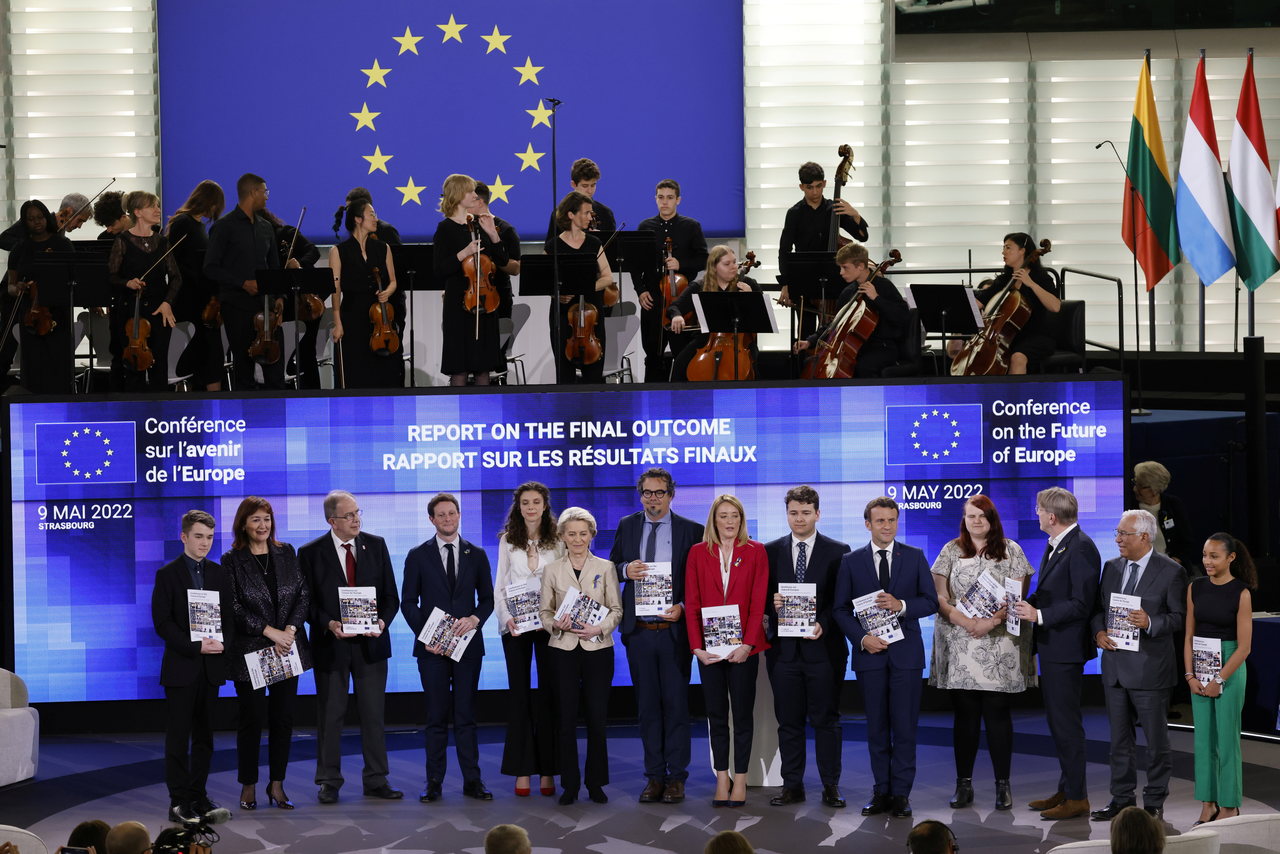European Political Community Meets for the First Time
The European Political Community (EPC) summit took place in Prague on 6 October. The aim of this format, proposed in May this year by the French presidency of the Council of the EU, is to strengthen Europe’s security and stability through EU cooperation with countries crucial to its military and energy security. However, there is a risk that such a broad cooperation format will fail to agree on concrete objectives, while some countries will not be favourably disposed towards pursuing common agreed priorities.
 DAVID W CERNY/Reuters/Forum
DAVID W CERNY/Reuters/Forum
Who took part in the meeting and what was discussed?
The EPC meeting was attended by representatives of the 27 EU Member States, the President of the European Commission Ursula von der Leyen, the President of the European Council Charles Michel, as well as the heads of other European countries, including those from the Western Balkans, the Eastern Partnership (except Belarus), Norway, Turkey, and the United Kingdom. The meeting was organised with the support of the Czech Presidency of the Council of the EU. The leaders debated issues related to security, energy, economy, and migration. After the meeting, no official statement was issued, but the EPC is to remain an opinion exchange forum and serve the search for common political goals. It was announced that the next EPC summits will be held in Moldova, Spain, and the United Kingdom.
No significant progress was achieved on most issues. The EU’s expectations of lowering energy prices remained without a concrete response from Norway, and there were no agreements on the construction of a new gas pipeline between Spain and Germany. Above all, no new declarations of military support for Ukraine were made. However, an important achievement on the margins was the meeting of the prime minister of Armenia and the president of Azerbaijan with the participation of Charles Michel and Emmanuel Macron. The leaders discussed the issue of common border delimitation and agreed that the next meeting would be held later this month in Brussels. Moreover, an EU civilian mission would be operating at the border for the next two months.
Why did France propose the creation of the EPC?
France’s long-term vision of European integration is that the EU should acquire the characteristics of a superpower, influencing its surroundings by the strength of its market, export capabilities, and coordinated military capabilities. For France, one of the tools for building a “common strategic culture” in the EU is to be able to manage relations with the EU’s immediate neighbours in a way that serves the interests of the Union as a whole. The aim of the EPC is thus to obtain agreement on common strategic objectives in the context of the collapse of the European security system following Russia’s full-scale invasion of Ukraine. Offering the EU’s neighbours a discussion forum on security, economic development, and enhancing mutual relations is meant to demonstrate that, through its neighbourhood policy, the Union aims to establish stable and predictable relations based on the status quo rather than on enlargement policy, towards which France remains sceptical. For French diplomacy, the EPC is also an opportunity to re-establish a strategic dialogue with the UK after Brexit.
What has been the response of the EU and other European countries to the new initiative?
The EU supports the idea of strengthening political cooperation within the EPC, treating it as a forum for political dialogue on the most urgent issues, including security, economic stability, energy supplies, and migration. The participation of countries such as Turkey and Norway, which are seen as indispensable partners in this situation, was of great importance for the EU. At the same time, smaller European countries decided to join the EPC, including those from the Western Balkans and the Association Trio, which remain key to ensuring stability in Europe. The conclusions of the European Council from June 2022 allowed to officially dispel their fears related to the perception of the EPC as an alternative to EU enlargement. The consent of UK Prime Minister Liz Truss also turned out to be important for the success of the new initiative, despite doubts about the country’s interest in a new format of cooperation in Europe after Brexit. Doubts were raised both by the name of the initiative and its potential in the context of the dispute with the EU over the Irish Protocol, among other things. However, the fact that the EU will not participate as one bloc at the summit and will refrain from displaying EU flags during the meeting has brought the UK’s position closer to its European partners, including France, with which relations had been tense until recently.
What is the significance of the EPC from the point of view of Polish interests?
For Poland and other Central European states, the EPC can serve as a platform for further promoting the idea of EU enlargement to Western Balkan states and the Associated Trio. Moreover, the lack of invitation to Russia and Belarus to the summit, while Turkey was invited, shows that most EU states correctly read the most important security challenges in Europe. From the Polish point of view, France’s desire to treat the EPC as a platform for building an understanding with the UK on military security issues and with Norway and Azerbaijan on energy issues is also beneficial.
Poland finds it problematic that some European diplomats and commentators treat the EPC as a kind of successor to the OSCE: the response to the Russian aggression against Ukraine indicates the key importance of the U.S. for European security, while the absence of the U.S. in the EPC severely limits the possibilities for action in the area of European security. The potential low decision-making capacity of the new forum is also questionable. First of all, it will be difficult to enforce the implementation of any political provisions that the 44 European states decide to adopt. Furthermore, given the current economic difficulties, additional incentives, such as funding for joint projects, are not to be expected within the framework of the EPC. Some countries, possibly including the UK, may also be opposed to these commitments. Solving the most pressing problems, for example, the energy transition or migration, may ultimately put a strain on the EU budget.






